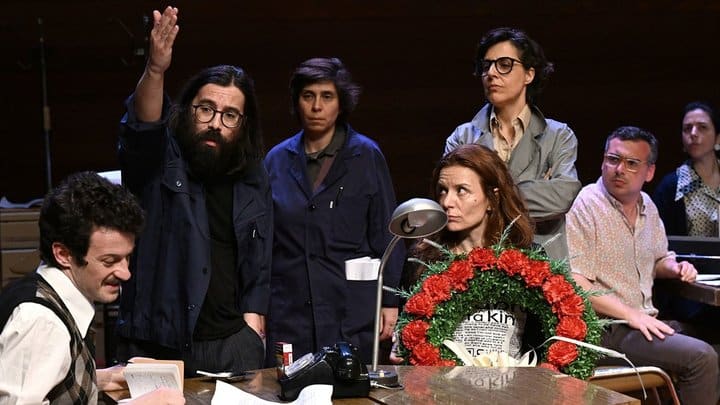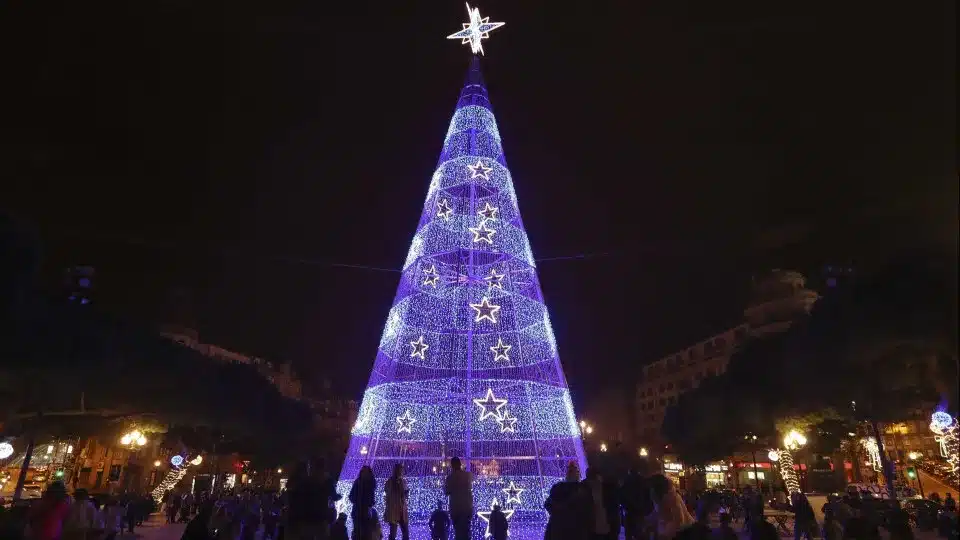On the 25th, a group of journalists will premiere a performance of José Saramago’s “A Noite” (The Night) at the Constantino Nery Theater in Matosinhos, about the dawn of April, when they are interrupted by the rumor of the death of journalism, and then everything starts all over again.
Written in 1979, the work portrays what was “the most beautiful dawn” experienced in the newsroom of a Lisbon daily newspaper.
The 25th edition is closed, the front page is the director’s work, the atmosphere is somewhat tense, there are journalists there who dare to think. The revolution enters the newsroom brought by the “illustrious typographers”, voices that the director, a fascist as he should be, tries to silence with the excuse that “the newspaper must be saved”.
On stage, everything is there: the typewriters, the old transistor, the scattered tobacco, lots of sheets, the telex, the ‘girl’ with the diary, who’s hooked up with the idiot editor-in-chief, the idealistic journalist, Torres – the revolutionary, the skirts below the knee, the hair tied up, the plaid sweaters, the shiny vest of the director and, of course, the engineer, the money man.
Sara Mago walks around the stage. She presents the play and speaks to the audience, “a chronicler of another movement” on stage, of today’s journalism.
The action is flowing, but the scene is invaded by Torres, out of breath, who tells the play to stop. It’s no longer Torres who’s speaking, but Camilo, a journalist from Público.
On stage, it’s no longer 1974. The year 2024 has returned and there’s a rumor on the street: “Journalism is dead,” announces Camilo, describing that colleagues are disappearing, falling to the side, others are on IVs and nobody knows anything.
The silence is short-lived and the actors come to their senses, they’re journalists again and they’re talking about something they don’t know what it is: “Marques Mendes hasn’t announced anything, there’s been no press release, no WhatsApp messages have arrived,” you hear. We need to know what’s going on.
“What does Lusa say? And the Expresso? Has Belém’s source said anything yet? What about the Communication Regulatory Authority, will it say anything this time? Correio da Manhã talks about ‘zombie journalists'”.
But is everything crazy? It’s no longer the wise guy who asks, but Simão, the Lusa journalist who refuses to accept the death of journalism and wants to continue the play: “There’s a fictitious group of journalists who get together to put on ‘The Night’, but in the meantime, in an allegorical sense, journalism is about to die and, during the play, ‘things go wrong’ and the rumor appears that journalism has died,” Simão Freitas, who together with João Gaspar created the dramaturgy for this new Night, explained to Lusa.
“It’s also an exercise in self-criticism, about what kind of journalism we’re being forced to do. There’s a wake-up call about the loss of editorial control, about administrations, about low salaries and job insecurity. We are in a period in which time is so frenetic and working conditions so deteriorated that we are starting to work on our knees. We don’t want to work on our knees any more,” said the journalist.
The very “creation of the theater group” is part of the dramaturgy: “The group is fictitious, there are journalists – or rather – actors who play more than one role, but it’s not for lack of people, it’s because we are increasingly proletarian as a class, we have to do everything, we become automatons. The idea of journalism as an intellectual, liberal profession has been lost, because what we have to do is produce, produce and produce.”
This “Night”, however, is also a cry for freedom, for hope and “has a lot of April 25 in it” because, Simão Freitas pointed out, “you can only do a play with this radicalism, because that night brought freedom”.
“And we were only able to do it the way we did, with the level of criticism, analysis and radicalism that we did, because we believe that journalism is not dead. It isn’t. We haven’t given up, nobody wants to give up and go home to do something else, nor do we want to continue in this journalism that we criticize,” he said.
“A Noite” (The Night), by the Grupo de Teatro Jornalistas do Norte, opens in the early hours of April 25, when the action of the play written by José Saramago begins, and takes to the stage of the Constantino Nery again on April 27 and 28, with performances planned for Vila Real, Ourém, Aveiro, Coimbra, Santarém and Leiria.









